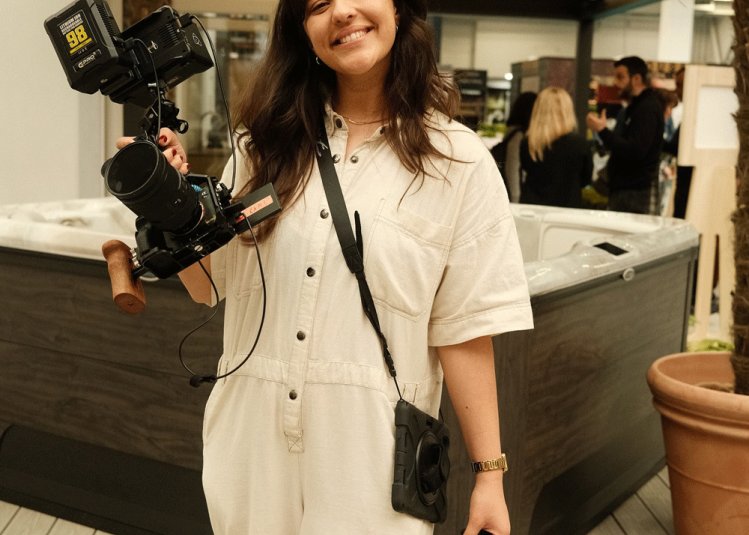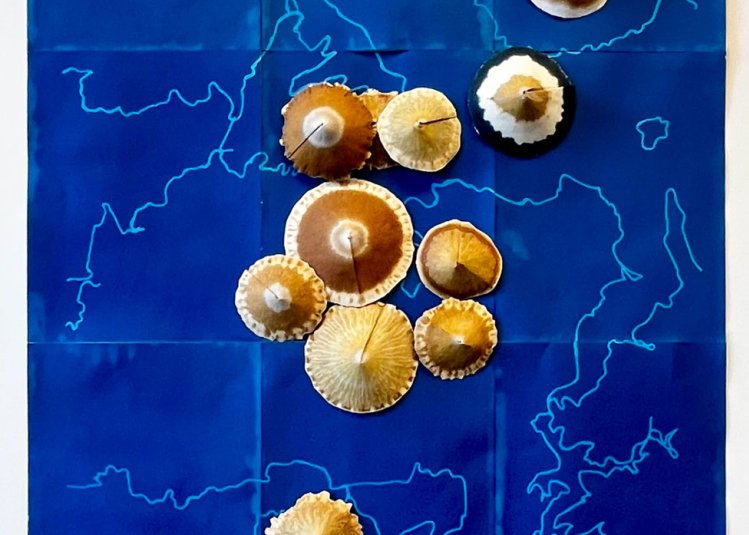An Indie Games online graduate’s switch from teaching to developer
22 July 2025

After 10 years lecturing in computer games, Adam Harrison made the decision to study Falmouth’s Indie Game Development MA (Online) course and return to the industry. A self- described “Unreal Engine enthusiast”, he is now working as a developer for Tripunk, a studio that helped create games such as The Lord of the Rings: Return to Moria and Oddworld: Soulstorm.
We caught up with Adam to hear about his career journey so far, his time studying on the course, and his advice for anyone looking to carve out a future in games.
Talk us through your journey in games so far
Games have always been a central part of my life. Some of my earliest memories are of playing Teenage Mutant Ninja Turtles on the Super Nintendo with my brother, or taking on the role of Tails in Sonic the Hedgehog. After completing my GCSE’s, I found myself torn between a career in accountancy and something more creative involving computers. I went on to study Digital Arts, which naturally progressed into 3D Art. That journey took me to university, where I studied Games Design and truly fell in love with the creative process behind making games. My curiosity about how games worked, rather than just playing them, grew stronger with each project, fuelled by years of development and experimentation.
After a brief stint in the industry as a 3D artist, I started teaching, where I remained for around eight years before starting my MA. Those eight years allowed me to explore a wide range of skills within games, and it’s where my deeper exploration of Unreal Engine really began – working with students on design, development and the creative process behind games.
Returning to the industry and working with Tripunk, but in a completely different role, has been incredibly energising. I’m now using the Unreal Engine to bring ideas to life and collaborating with a passionate team.
How was your master’s in Indie Game Development at Falmouth?
The MA at Falmouth was an incredibly important step for me. It allowed me to step back from teaching and fully immerse myself in learning and creative projects. Having deadlines and structure helped me stay focused and forced me to see projects through, rather than letting them fall away after a few weeks as so often happens with personal projects.
I had a brilliant group of peers on the Games and UX Design courses who I talked with throughout my journey, which was hugely beneficial. Even though the course was online, I found it easy to collaborate and communicate with like-minded peers.
During your time as a lecturer, what knowledge did you feel was most important to pass on?
The most important skill I wanted to pass on to my students was around ideation and actual development. Sitting on an idea and thinking it through is useful, but it’s critical to make it, test it, get feedback, and iterate. Beyond technical skills, I always emphasised critical thinking,
collaboration and resilience. Being able to reflect on your work, take feedback and improve is what really sets great developers apart.
If I were teaching now, I’d lean even more into the importance of prototyping, ideation and failing fast. I would also encourage students to make more personal, meaningful games early on and play more indie games!
What games are you enjoying at the moment?
I'm currently on a bit of a retro gaming spree, playing a lot from the PS1 and PS2 eras. Right now, I’m around 40 hours into Final Fantasy X. I also occasionally dip back into League of Legends – sadly, I’ve been playing for the last 13 years or so!
Over the last year, I’ve tried to play a wide range of games. Some standouts have been Balatro, Flock, Mullet Madjack, Bomb Rush Cyberfunk and Inscryption. I try to play as much variety as I can. I also really appreciate games I can pick up and play for short sessions, as dedicated time for large AAA games becomes harder to find each year.
What piece of advice would you give to someone thinking about a career in the games industry?
Make things. Don’t wait for the ‘perfect’ idea. Start small, finish projects and learn by doing – and failing. Your portfolio is everything. Network! Oh, and play indie games!
External links
Tripunk website: https://www.tripunk.com





